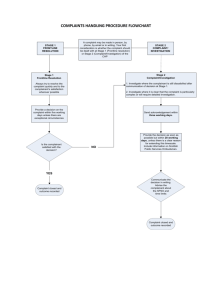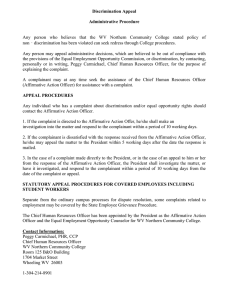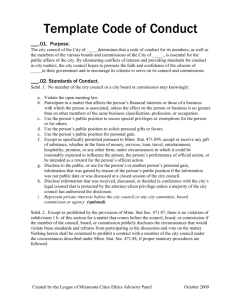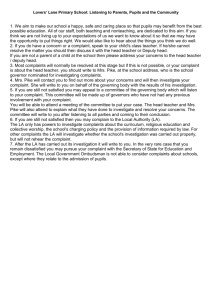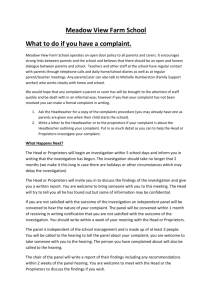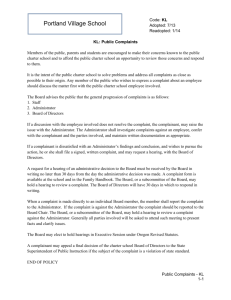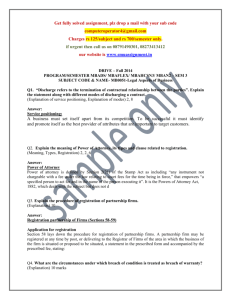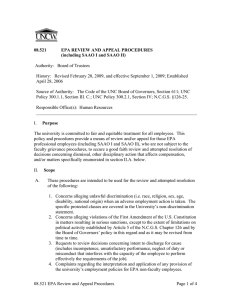Standards Allegations
advertisement
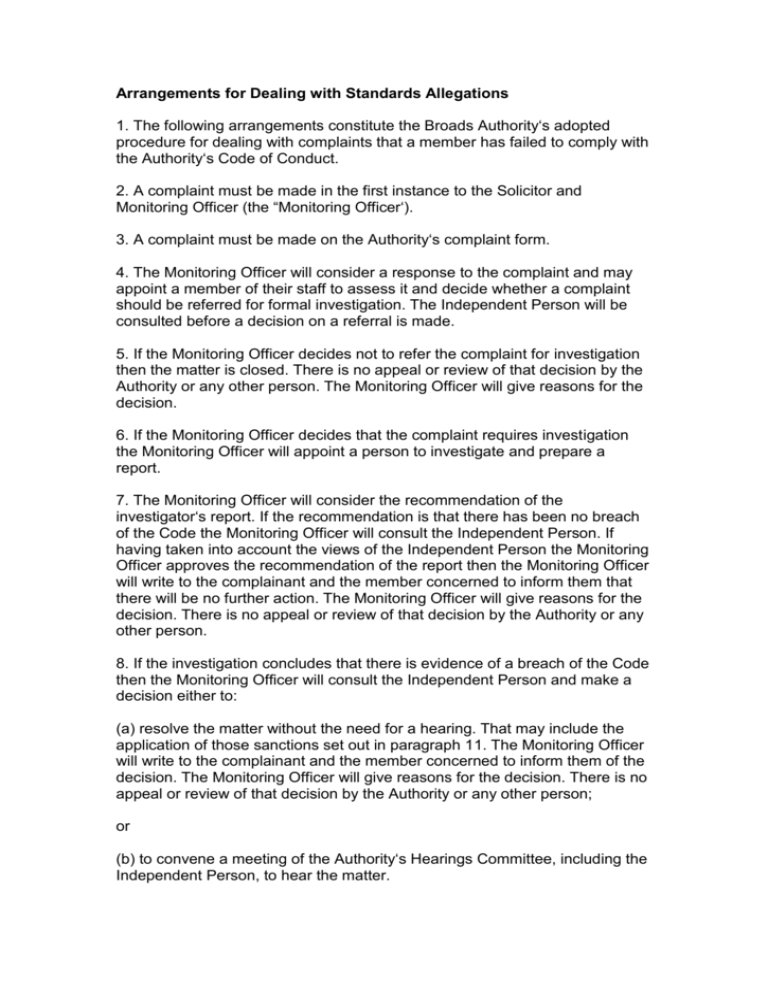
Arrangements for Dealing with Standards Allegations 1. The following arrangements constitute the Broads Authority‘s adopted procedure for dealing with complaints that a member has failed to comply with the Authority‘s Code of Conduct. 2. A complaint must be made in the first instance to the Solicitor and Monitoring Officer (the “Monitoring Officer‘). 3. A complaint must be made on the Authority‘s complaint form. 4. The Monitoring Officer will consider a response to the complaint and may appoint a member of their staff to assess it and decide whether a complaint should be referred for formal investigation. The Independent Person will be consulted before a decision on a referral is made. 5. If the Monitoring Officer decides not to refer the complaint for investigation then the matter is closed. There is no appeal or review of that decision by the Authority or any other person. The Monitoring Officer will give reasons for the decision. 6. If the Monitoring Officer decides that the complaint requires investigation the Monitoring Officer will appoint a person to investigate and prepare a report. 7. The Monitoring Officer will consider the recommendation of the investigator‘s report. If the recommendation is that there has been no breach of the Code the Monitoring Officer will consult the Independent Person. If having taken into account the views of the Independent Person the Monitoring Officer approves the recommendation of the report then the Monitoring Officer will write to the complainant and the member concerned to inform them that there will be no further action. The Monitoring Officer will give reasons for the decision. There is no appeal or review of that decision by the Authority or any other person. 8. If the investigation concludes that there is evidence of a breach of the Code then the Monitoring Officer will consult the Independent Person and make a decision either to: (a) resolve the matter without the need for a hearing. That may include the application of those sanctions set out in paragraph 11. The Monitoring Officer will write to the complainant and the member concerned to inform them of the decision. The Monitoring Officer will give reasons for the decision. There is no appeal or review of that decision by the Authority or any other person; or (b) to convene a meeting of the Authority‘s Hearings Committee, including the Independent Person, to hear the matter. 9. The procedure at the hearing will be in accordance with a procedure to be determined by the Monitoring Officer. 10. If the hearing concludes that there has been no breach of the Code there will be no further action. There is no appeal or review of that decision by the Authority or any other person. The Committee will give reasons for its decision. 11. If the hearing concludes that there has been a breach of the Code the Hearings Committee will consider whether and what sanctions it might be appropriate to impose on the member found to be in default. These are as follows: a) Censure or reprimand. b) Report to full Authority. c) Recommendation to the Authority to remove the member from membership of committees or sub-committees. d) Require the member to undergo training in ethics and standards. e) Removal of the member from external nominations or appointments. f) Withdrawal of facilities or services from the member including access to the Authority‘s premises or IT facilities. The Committee will give reasons for its decision. There is no appeal or review of that decision by the Authority or any other person. Victoria McNeill Solicitor and Monitoring Officer July 2012
